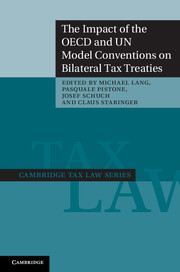Book contents
- Frontmatter
- Contents
- Contributors
- Preface
- Table of cases
- Table of statutes
- General report
- 1 Argentina
- 2 Australia
- 3 Austria
- 4 Belgium
- 5 Brazil
- 6 Canada
- 7 Chile
- 8 China
- 9 Colombia
- 10 Croatia
- 11 The Czech Republic
- 12 Estonia
- 13 Finland
- 14 France
- 15 Germany
- 16 Hong Kong
- 17 Hungary
- 18 India
- 19 Italy
- 20 Lebanon
- 21 Liechtenstein
- 22 The Netherlands
- 23 New Zealand
- 24 Norway
- 25 Peru
- 26 Poland
- 27 Portugal
- 28 Romania
- 29 The Russian Federation
- 30 Serbia
- 31 Slovakia
- 32 Slovenia
- 33 Spain
- 34 Sweden
- 35 Uganda
- 36 The UK
- 37 The USA
- Index
- References
2 - Australia
Published online by Cambridge University Press: 05 November 2014
- Frontmatter
- Contents
- Contributors
- Preface
- Table of cases
- Table of statutes
- General report
- 1 Argentina
- 2 Australia
- 3 Austria
- 4 Belgium
- 5 Brazil
- 6 Canada
- 7 Chile
- 8 China
- 9 Colombia
- 10 Croatia
- 11 The Czech Republic
- 12 Estonia
- 13 Finland
- 14 France
- 15 Germany
- 16 Hong Kong
- 17 Hungary
- 18 India
- 19 Italy
- 20 Lebanon
- 21 Liechtenstein
- 22 The Netherlands
- 23 New Zealand
- 24 Norway
- 25 Peru
- 26 Poland
- 27 Portugal
- 28 Romania
- 29 The Russian Federation
- 30 Serbia
- 31 Slovakia
- 32 Slovenia
- 33 Spain
- 34 Sweden
- 35 Uganda
- 36 The UK
- 37 The USA
- Index
- References
Summary
The relevance of the OECD and UN Model Conventions and their Commentaries for the interpretation of Australian tax treaties
Introduction
When Australia first introduced a federal income tax in 1915, it only applied in respect of Australian-sourced income. In 1930 a residence-based tax regime was introduced, with the foreign income of Australian residents being taxable in Australia, but at the same time an exemption was enacted for foreign-source income that had been subject to income taxation at any rate in the source country. As there was little risk of double taxation for Australian residents at least, it was not until 1946 that Australia entered into its first tax treaty, an agreement with the UK. In 1947 the exemption was removed for foreign-source dividends and a foreign tax credit system was adopted for dividends from abroad. Australia was slow to enter into further treaties and, prior to joining the OECD in 1971, had only entered into an additional five treaties, with Canada, Japan, New Zealand, Singapore and the USA. With the exception of New Zealand, these countries were already members of the OECD. Even after joining the OECD, Australia did not begin to expand its treaty network significantly until the 1980s, with only five treaties entered into in the 1970s (with Belgium, France, Germany, the Netherlands and the Philippines). A large number of new treaties were concluded in the 1980s and 1990s (fifteen and thirteen, respectively). However, since 2000, the expansion of Australia's treaty network has slowed, with only five new comprehensive treaties being entered into in the last ten years.
By mid-2010, Australia had entered into forty-four comprehensive treaties (twenty-six of which are with OECD Member countries). Further, an additional three treaties that only address the exchange of information and the taxation of individuals have been signed with the British Virgin Islands, the Isle of Man and Jersey. Australia has therefore now concluded forty-seven treaties.
- Type
- Chapter
- Information
- Publisher: Cambridge University PressPrint publication year: 2012

